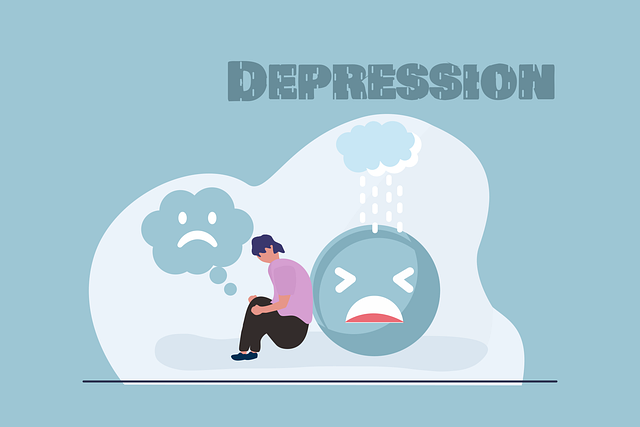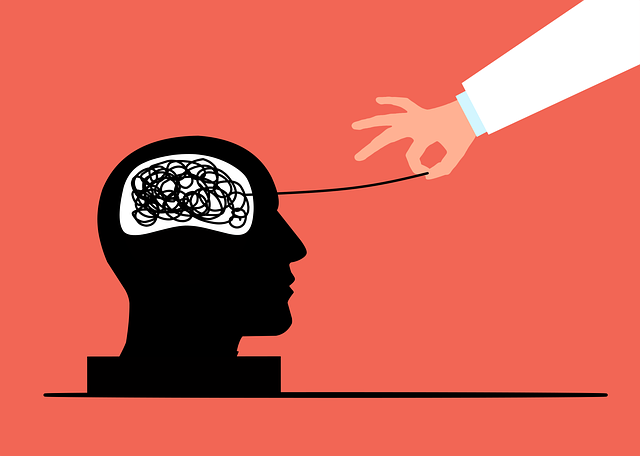Media portrayals significantly influence societal attitudes towards elderly mental health, often perpetuating stigma and ageism-related barriers to treatment. Stereotyped narratives hinder older adults from seeking help due to physical health comorbidities and existing ageist challenges. To combat this, a policy approach advocating for diverse, accurate media content is crucial. Positive depictions can encourage empathy, facilitate access to tailored mental health support like play therapy, and promote resilience among the elderly. By incorporating play therapy into media narratives, stereotyping can be broken, and public awareness campaigns can challenge ageist stereotypes, showcasing accessible resources and fostering a more compassionate society.
“In today’s media landscape, the representation of mental illness, especially among elderly individuals, plays a pivotal role in shaping societal perceptions. This article delves into the profound impact of media portrayals on understanding and addressing mental health challenges. We examine the current state of elder mental illness depiction, highlighting disparities. By exploring the benefits of integrating therapy techniques in narratives, we offer strategies for accurate representation. Furthermore, we advocate for fostering positive change through balanced media portrayals, emphasizing the crucial role of play therapy in enhancing elderly care.”
- Understanding the Impact of Media Portrayals on Mental Health Perception
- The Current State: How Elders are Depicted in Media regarding Mental Illness
- Benefits of Incorporating Therapy Techniques in Media Narratives
- Strategies for Accurately Representing Elderly Mental Health Struggles
- Fostering Positive Change: Encouraging More Balanced Media Portrayals
Understanding the Impact of Media Portrayals on Mental Health Perception

Media portrayals of mental illness significantly influence societal perceptions and attitudes, especially among vulnerable populations like the elderly. Stereotyped or inaccurate representations can perpetuate stigma, leading to misinformed judgments and barriers in seeking therapy for elders. This is particularly concerning given the unique challenges faced by older adults, such as ageism and comorbid physical health issues, which require tailored mental health support.
A comprehensive mental health policy analysis and advocacy approach is necessary to address these concerns. By promoting accurate and diverse media portrayals, we can foster a more empathetic society that encourages resilience building among the elderly. Encouraging positive thinking and open conversations about mental health struggles enables elders to access available resources, including play therapy, without fear of judgment or discrimination.
The Current State: How Elders are Depicted in Media regarding Mental Illness

In the current media landscape, the depiction of mental illness and older adults often falls short of accuracy and sensitivity. Elders are frequently portrayed as either stoic figures who silently bear their burdens or dramatized characters struggling with severe, unmanageable conditions. These stereotypes obscure the nuanced reality of mental health experiences among the elderly population. Many older adults face unique challenges such as loneliness, isolation, and age-related cognitive changes, which can contribute to mental health issues like depression and anxiety. However, these concerns are often overshadowed by more sensationalized narratives, hindering public awareness and understanding.
The underrepresentation of effective interventions, such as therapy for elders and play therapy, in media further complicates the matter. Public awareness campaigns focused on mental health should strive to challenge these stereotypes by showcasing diverse stories and highlighting accessible resources like crisis intervention guidance and depression prevention strategies tailored for seniors. By presenting more realistic portrayals, media can facilitate open conversations about mental illness among older adults, encourage support systems, and promote evidence-based solutions, ultimately fostering a more compassionate and informed society.
Benefits of Incorporating Therapy Techniques in Media Narratives

Incorporating therapy techniques into media narratives offers a powerful way to challenge stereotypes and promote understanding of mental illness. By presenting authentic, nuanced portrayals of individuals seeking therapy—especially for elders and through play therapy methods—media can foster empathy among viewers. This approach ensures that audiences see mental health struggles as relatable and treatable, thereby reducing stigma.
Furthermore, integrating these techniques aligns with broader efforts like burnout prevention strategies for healthcare providers and public awareness campaigns development. Well-crafted media narratives can encourage viewers to prioritize their own well-being, initiate conversations about mental health, and support those facing challenges. This can also lead to increased interest in self-care routine development for better mental health, ultimately contributing to a more supportive societal environment.
Strategies for Accurately Representing Elderly Mental Health Struggles

Representing the mental health struggles of the elderly population accurately in media is paramount to fostering understanding and reducing stigma. One effective strategy involves incorporating therapy for elders, such as play therapy, into narratives. Play therapy is an evidence-based approach that can help older adults process emotions, recall traumatic experiences, and find coping mechanisms through creative means like art or games. By showcasing these therapeutic methods, media platforms can offer valuable insights into the complexities of elderly mental health.
Additionally, promoting self-awareness exercises and encouraging open conversations about mental health among the elderly demographic is crucial. Healthcare provider cultural competency training can also play a significant role in ensuring accurate representation. Equipping professionals with knowledge about ageism and mental health disparities enables them to provide better care and communicate effectively with older adults seeking help. Public awareness campaigns development centered around these themes can further educate the public, challenging stereotypes and encouraging support for elderly individuals facing mental health challenges.
Fostering Positive Change: Encouraging More Balanced Media Portrayals

The media has a powerful influence over public perception, shaping how we understand and interact with various social issues, including mental health. For years, the portrayal of mental illness in movies, TV shows, and news articles has often perpetuated harmful stereotypes and misconceptions, leading to stigmatization and discrimination. However, there is a growing movement towards fostering positive change by encouraging more balanced media representations. By showcasing diverse real-life experiences, featuring stories of recovery and resilience, and integrating therapeutic practices such as play therapy for elders, the media can contribute to breaking down barriers and promoting empathy.
This shift requires collaboration between content creators, mental health professionals, and community advocates. Implementing crisis intervention guidance and incorporating strategies for emotional regulation and effective communication in media narratives can ensure that audiences receive accurate and sensitive information. Ultimately, these efforts aim to create a more inclusive and supportive environment where individuals struggling with mental illness feel seen, understood, and empowered to seek the help they need, including therapy options tailored to their unique needs, such as play therapy.
Media has a significant impact on shaping public perception of mental health, especially among the elderly. By challenging stereotypical portrayals and adopting more balanced narratives, media can foster positive change. Incorporating therapy techniques into stories not only adds depth but also raises awareness about available support systems. Accurately representing the unique struggles of elderly individuals with mental illness is crucial, encouraging empathy and promoting understanding through play therapy methods. This shift in media representation can lead to improved mental health services and better societal acceptance for those seeking help.














